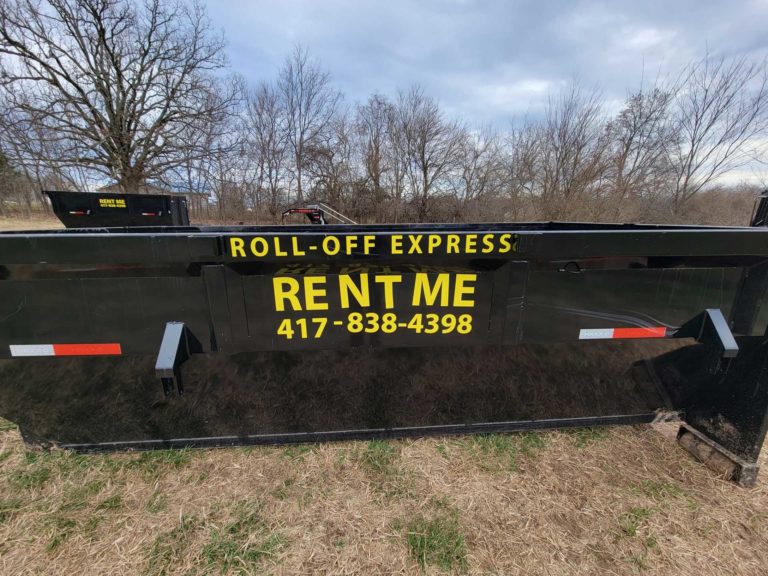

When it comes time to remove an outdated water heater, the process may seem daunting. This is true for both electric and gas models. Knowing the proper methods for disposing of your water heater is key. In this guide, we’ll walk you through each step to ensure you manage the disposal of your water heater both safely and efficiently.
Why are Water Heaters Difficult to Dispose Of?
Hazards of Improper Water Heater Disposal
How to Dispose of a Water Heater Properly
Find the Best Disposal Method for Your Water Heater
Call Us for Advice on Water Heater Disposal
Parts of a Water Heater
Key Takeaways
The task of discarding an old water heater, particularly the large and cumbersome hot water tanks, presents distinct challenges. These units are made up of valuable metals and various components that need to be handled with care. Additionally, the environmental consequences of not disposing of them correctly are considerable.
The process of removing these old heaters often entails detaching intricate systems, such as the cold water supply valve, along with the gas or electrical connections, based on the type of heater. This not only requires technical expertise but also a thorough knowledge of safety procedures. Furthermore, the bulkiness and heaviness of these heaters make their transportation to an appropriate disposal or recycling center a complex task, often requiring specialized tools or vehicles.
The incorrect disposal of water heaters, especially the older models, can lead to serious consequences, including environmental harm and the risk of unlawful dumping. For example, gas water heaters have gas lines that require secure handling to avert damage to property. Moreover, incorrect handling of components such as the drain valve or the relief valve discharge pipe of the water heater could cause significant injuries.
With electric water heaters, the risks involve exposure to high-voltage components like the heating elements. Improper handling of these elements poses a risk of electric shocks. Furthermore, the insulation in older water heater tanks may contain asbestos or other hazardous materials. Exposure to these substances through improper disposal can have severe health implications. Thus, it’s essential to be fully aware of the specific risks associated with your type of water heater to ensure its safe disposal.
Considering recycling as a method for getting rid of your outdated water heater is an excellent approach. Your local recycling facility can process the valuable metals it contains, allowing components like copper coils and anode rods to be repurposed. This method is not just beneficial for the environment but might also allow you to receive the current market value for the scrap metal.
Also, these facilities typically manage various parts of your water heater, including the insulation and the electrical components. They make sure that these elements are either recycled or discarded in a manner that complies with environmental standards. It’s important to verify if your local recycling center takes water heaters, as there may be specific requirements or limitations in place.
Investigate the various recycling alternatives available for household appliances like water heaters, offered by numerous manufacturers and retailers. These initiatives ensure the correct disposal of your outdated unit, including its heating elements and compression fittings.
These recycling initiatives not only offer convenience but are also often provided free of charge. Opting for these programs demonstrates a commitment to environmentally responsible disposal, as manufacturers possess the expertise and resources necessary for the efficient recycling or repurposing of old water heaters, thus minimizing their impact on the environment.
Consider participating in community collection events as a viable option for getting rid of non-functional water heaters. These events readily accept larger items and can provide valuable guidance on the safe disconnection and transportation of your aging heater.
These gatherings are usually orchestrated by local authorities or environmental advocacy groups, presenting an excellent opportunity to ensure the conscientious disposal of your outdated heater. Moreover, they often feature experts who can offer tailored advice on the most suitable disposal techniques for various water heater types.
Should your old, functional hot water heater still be in working order, think about the possibility of donating it to local charitable organizations. Before making the donation, verify that key components such as the water heater drain and cold water supply valve are in excellent working condition.
Donating your water heater not only benefits individuals in need but also plays a role in promoting sustainability by prolonging the appliance’s useful life. Make inquiries at nearby shelters, building material reuse centers, or non-profit organizations that welcome household appliance donations.
Consider online platforms as a viable avenue for parting ways with your old water heater, especially if it remains in good condition. When creating your listing, be sure to include details about the energy source (gas or electricity) and compatibility with water quality.
Selling or giving away your water heater through online channels can also introduce you to individuals or organizations interested in repurposing old units. It offers a practical means of connecting with someone who can put your appliance to good use, preventing it from becoming landfill waste.
For more innovative methods of repurposing an old water heater, you can explore additional ideas in the resource titled ‘Unique Ways to Repurpose an Old Water Heater’.
Consider the option of scrapping your old water heater, a potentially lucrative move, particularly for non-ferrous metals and components like copper coils. Be sure to inquire at your local scrap yard to determine the best compensation you can receive for your aging tank.
When opting for scrapping, it’s essential to stay informed about current metal prices, as they can vary over time. Additionally, some scrap yards provide pickup services, which can be convenient if you encounter difficulties transporting the water heater on your own.
For those who prefer not to tackle the task themselves, enlisting the assistance of professional pickup services, such as Roll-Off Express, can be a more suitable choice. These experts handle the heavy lifting and ensure the secure disposal of your old water heater.
Hiring a professional service proves particularly beneficial if you possess a larger, bulkier model or if you’re uncertain about how to disconnect and prepare the heater for disposal. These services typically come equipped with the necessary tools and expertise to safely remove water heaters from your property.
For guidance on selecting the right waste management company, you can refer to the valuable resource titled ‘How to Choose a Dumpster Rental Company’.
Assess your disposal alternatives based on your water heater’s condition, local regulations, and available disposal services. Whether you own a tankless water heater or an older model, selecting the right disposal method holds significant importance.
To arrive at an informed decision, take into account factors like the dimensions and weight of your water heater, particularly if it’s a bulky appliance such as a traditional hot water tank. For residents in Dallas, Texas, it’s crucial to familiarize themselves with specific local regulations concerning the disposal of such devices. When contemplating recycling or donation, evaluate the heater’s overall condition – if it’s still functioning well, donation may be the most appropriate choice. Conversely, for non-operational units, recycling or engaging a junk removal service could prove more suitable.
To gain insights into what materials are prohibited at landfills, you can explore the comprehensive resource titled ‘What’s Banned in Landfills: A State-by-State Guide’, offering information on a state-by-state basis.
If you find yourself uncertain about the best course of action for disposing of your water heater, don’t hesitate to get in touch with Roll-Off Express today at (417) 838-4398 for professional advice. Our experts, based in [Location], are ready to assist you, whether you’re dealing with a gas heater or an electric model.
Roll-Off Express specializes in providing efficient and environmentally responsible disposal services. We can offer support in various aspects, from suggesting local recycling options to organizing the secure and compliant removal of your old water heater. Our team is well-versed in handling both residential and commercial water heaters, ensuring adherence to all relevant local and state regulations. Feel free to reach out to us for personalized guidance that suits your unique requirements.
Familiarizing yourself with the various elements comprising your water heater is essential for effective disposal. Key components include:
The tank serves as the primary storage and heating area for water. It is typically constructed from steel and lined with materials like glass to prevent corrosion. The tank’s size can vary, influencing the water heater’s overall capacity.
This rod, usually crafted from materials like magnesium or aluminum, plays a critical role in preventing corrosion within the tank. Regular inspection and replacement of the anode rod can significantly prolong the life of your water heater.
In electric water heaters, these components are responsible for heating the water. In gas water heaters, the burner, typically located at the tank’s bottom, together with the pilot light and gas line connections, performs this task.
This integral part regulates the water temperature within the tank. It serves as a vital safety feature, ensuring that the water doesn’t reach excessive temperatures.
Designed to relieve pressure in case it becomes too high within the tank, this valve is a crucial safety component that helps prevent potential explosions.
Connected to the temperature-pressure relief valve, this pipe directs the outflow of hot water from the heater, particularly in situations involving excess pressure.
This valve is employed to halt the water supply into the heater. Its significance becomes evident during maintenance work or emergency situations that necessitate a swift water supply cutoff.
Situated at the tank’s base, this valve is utilized for draining the water from the heater, a crucial step for maintenance, replacement, or when relocating the heater.
Understanding these elements holds paramount importance for proper maintenance and disposal procedures. When disposing of a water heater, it’s imperative to take into account the appropriate handling of each part, particularly if you intend to recycle the unit. Some components, such as the anode rod and heating elements, may be eligible for recycling, whereas others might necessitate specialized disposal methods due to potential environmental concerns.
For more comprehensive insights into water heater components and their functions, refer to the article titled ‘Water Heater Parts And What They Do.’
In summary, regardless of whether you’re dealing with a newly purchased unit or an aging model, the process of disposing of your water heater requires careful consideration and well-informed decisions. Here are the fundamental points to ensure a disposal process that is both safe and eco-friendly while complying with regulations:
Evaluate Scrap Metal Value:
Recognize the potential value of scrap metal in your old water heater, particularly components like copper coils and anode rods.
Exercise Caution with Gas Lines and Water Pipes:
In the case of a gas-powered water heater, prioritize the safe disconnection of the gas line. Equally important is the proper handling of water pipes to prevent leaks and other complications.
Place Safety First:
Always prioritize safety by understanding the correct procedures for shutting off water and power supplies and recognizing when professional assistance is necessary.
Mindful of Environmental Impact:
Consider the environmental consequences of your disposal method choice. Opting for recycling or donation, rather than landfill disposal, can significantly reduce environmental harm.
Adhere to Legal Requirements:
Familiarize yourself with local laws and regulations regarding the disposal of appliances to ensure that your chosen disposal method is in compliance with legal standards.
Explore a Range of Disposal Options:
From recycling initiatives and take-back programs to professional waste hauling services, explore all available options to determine the most suitable one for your unique circumstances.
Seek Expert Advice When Uncertain:
Don’t hesitate to reach out to professionals like Roll-Off Express for guidance, especially if you’re uncertain about the most appropriate water heater disposal method.
By keeping these essential factors in mind, you can ensure that your water heater disposal is managed responsibly, securely, and with a commitment to environmental conservation.
If you require further details regarding hot water heater disposal, information about new units, or have any inquiries related to water heaters, please don’t hesitate to reach out to us through our website or give us a call on our hotline for expert assistance.
If you neglect to flush your water heater, sediment can accumulate at the tank’s bottom, particularly in areas with hard water. This buildup can diminish your heater’s efficiency, resulting in higher energy costs and the potential for overheating and tank damage. Over time, it can significantly reduce the lifespan of your water heater.
The cost of flushing a water heater can vary depending on your location and the service provider. Generally, professional flushing services can range from $80 to $200. However, you have the option to flush your water heater yourself if you have the necessary tools and follow proper safety procedures, potentially saving you the service fee.
For an old water heater, you have several disposal options. You can recycle it at a local recycling center, donate it if it’s still in good working condition, sell or give it away online, scrap it for metal, or use a professional waste hauling service like Roll-Off Express. Remember to consider the environmental impact and local regulations when choosing your disposal method.
Yes, you can remove a water heater, but it requires caution. You’ll need to turn off the power source (gas or electricity), shut off the water supply, and properly disconnect the gas line, water pipes, and venting system if applicable. If you’re not confident in doing this safely, it’s recommended to hire a professional to avoid risks such as gas leaks or water damage.
To get rid of your hot water system, first determine whether it’s suitable for recycling, donation, or disposal. If it’s in good condition, consider donating or selling it. For recycling or disposal, contact local facilities to check their acceptance policies. Professional removal services can also be employed for safe and compliant disposal, particularly for large or heavy systems. Always follow local guidelines to ensure environmentally responsible disposal.

Roll-Off Express | LETS TALK TRASH | Dumpster Rentals